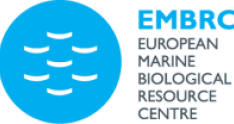Istituto per L'Ambiente Marino Costiero del Consiglio Nazionale delle Ricerche

Overview
The Institute for Coastal Marine Environment (IAMC) is part of the Italian National Research Council (CNR). Its headquarter is in Naples and the other six sections are distributed in Southern Italy: Apulia (1), Sardinia (1) and Sicily (4).
The Institute conducts research in topics relevant to marine science such as: sustainable use of resources (i.e. fishery, aquaculture, marine genetic resources); biodiversity (microbiology, alien species) and conservation; quality of the marine environment, including the use of biological indicators; environmental chemistry and ecotoxicology (from environmental monitoring to remediation); anthropogenic hazardd; effects of climate change (including acidification, hypoxia and temperature rise) on the ecology, ecophysiology and behaviour of fish and other marine organisms; bio-acoustics research; integrated coastal zone management and marine spatial planning, taxonomy, restoration ecology, and technological development.
Main Services
Marine ecosystems
Biodiverse Mediterranean (rocky and soft-bottom) benthic and pelagic ecosystems including seagrass beds, steep drop-offs and near-shore submarine canyons; LTER sites and pristine sites.
Provision of Biological resources and culture collections
Staff maintains and performs research on model organisms: sea grasses (Posidonia oceanica), crustaceans (Palinurus elephas), cnidarians (Astroides calycularis).
Access to ecosystems
Research vessels equipped for sampling coastal seawater, plankton (including ichtyoplankton), benthic organisms, sediment and to record video-sampling of ichtyofauna using BRUV across a range of marine habitats are available. In principle support to SCUBA diving is also provided when health and safety procedures are fully met.
Technology platforms
- Imaging analysis, SEM, TEM and Confocal microscopy
- Molecular biology and omics, basic molecular biological analysis, nucleic acid microfluidic chip analysis, gene expression, copy-number variation, genotyping, ddPCR amplification, Sanger sequencing, next generation sequencing, high throughput sample handling for molecular biological analyses
- Remote sensing and telemetry
- Structural and chemical analysis, analysis of nutrient and chlorophyll a concentrations, analysis and identification of photosynthetic pigments and of particulate C and N concentrations, trace element analysis using ICP-AES and ICP-MS, isotope analysis using IRMS, analysis of organic compounds using GC-MS, mineralogical analyses using XRD.
Experimental facilities
Modern laboratories and facilities are available for research on marine ecology and include Aquaria and mesocosm systems.
Training and education
Service staff will provide training in the use of the platforms and technologies and assist, if needed, with experimental design and troubleshooting. Staff provides specialist courses for experts as well as consultancy.
E-infrastructures and associate services
CNR-IAMC has its own library network, and an IT service connected with those of the other CNR Institutes.
Supporting facilities
In house conference and teaching facilities and in-house lodging for stations at remote locations.


